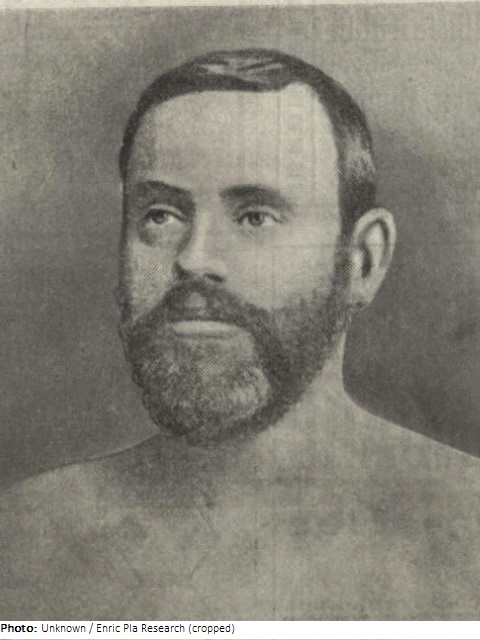Bill Burgess was born in Lyndhurst Place, Rotherham, as the son of Alfred Burgess, a blacksmith, and Camilla Peat, a cook. In 1882 his father took up an appointment as a tire-maker to the Earl of Shrewsbury. Bill was later sent to Paris by the Earl to set up a branch of the wheel and tire business, which was near Port d’Asnieres. Bill Burgess settled in Paris, living there for the remainder of his life and marrying a French woman, and he would eventually be interned briefly by the Germans during World War II. Burgess competed in the swimming events held during the 1900 Paris World’s Fair, which are considered as the Olympic swimming competitions. Although he was a British citizen throughout his life, at the 1900 Olympics he swam for the French club, Libellule de Paris.
Burgess’s main claim to fame as a swimmer, however, came in 1911 when, after 13 failed attempts, he became the second man to swim the English Channel, after Matthew Webb in August 1875, finishing in 22 hours, 35 minutes. It would not be until 1923 that a third successful crossing would be made, by Henry Sullivan, and in 1926, Burgess, by then a swim coach, would train American Trudy Ederle in her successful attempt to become the first woman to swim the Channel. Burgess received a gold cup for his Channel crossing, which was exhibited for many years at the Great Smith Street Baths in London. A bronze bust of Burgess now stands at the Sheffield Road pool, with the nose rubbed smooth from generations of British students rubbing it for luck prior to going into the baths.

 France
France Great Britain
Great Britain FRA
FRA GBR
GBR FRA
FRA GBR
GBR